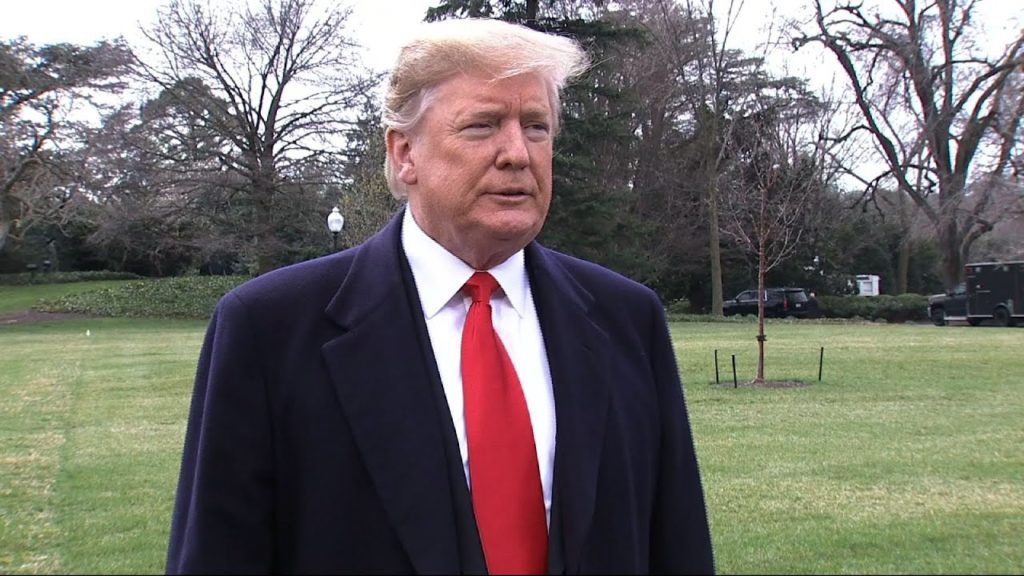President Donald Trump’s budget plan would produce significantly larger budget deficits than promised when it was released in March, mostly because its estimates of economic growth are too rosy, according to a new nonpartisan analysis Thursday.
The Congressional Budget Office estimate said Trump’s budget, if enacted in its entirety, would produce deficits that would be $2.7 trillion greater over the coming decade than promised by the White House budget office.
CBO predicted deficits under Trump’s plan, which was criticized by both Democrats and Republicans, would total almost $10 trillion over 2020 through 2029. The administration promised deficits totaling $7.3 trillion.
The difference comes because Trump’s budget predicts economic growth averaging 2.9% over the coming decade while CBO estimates growth averaging 1.8% over that timeframe. As a result, revenues would fall $3.8 trillion short of White House estimates, CBO said. But spending would be $1.1 trillion less as well, which would ameliorate the deficit impact somewhat.
Trump’s budget, which promised sharp cuts to domestic appropriations but left Medicare and Social Security benefits relatively untouched, was declared dead on arrival as soon as it was released. Trump promised it would curb the deficit by $4.1 trillion over a decade but in CBO’s view it would curb deficits by just $1.5 trillion.
(AP)












4 Responses
Wow, what a surprise. Everything is much worse than promised. North Korea, Iran, healthcare, etc
Well North Korea and Iran and healthcare are all much better so far BH.
However, it is terrible that there is any deficit at all.
How can budgets be passed that are hundreds of billions over what is being brought in. A few million here and there, I can understand, but billions and trillions? Crazy
Trumps impulsive ego based decisions have grave consenquences. This is the effect of governing by tweet and soundbite with no depth or nuance whatsoever. Unfortunately there are many voters who vote by tweet and sounbite as well.
While there still are some conservative Republicans (from the “Tea Party”) who object to deficit, the majority of both parties appear to believe that as long as inflation is not a problem, deficits are irrelevant, giving a green light to cutting taxes and increasing spending. It should be noted that the current lack of serious inflation contradicts generally accepted economic theory, suggest that perhaps the economic theory was not valid to begin with. Trump’s ability to virtually eliminate unemployment while keeping inflation low is a major, and unprecedented achievement.